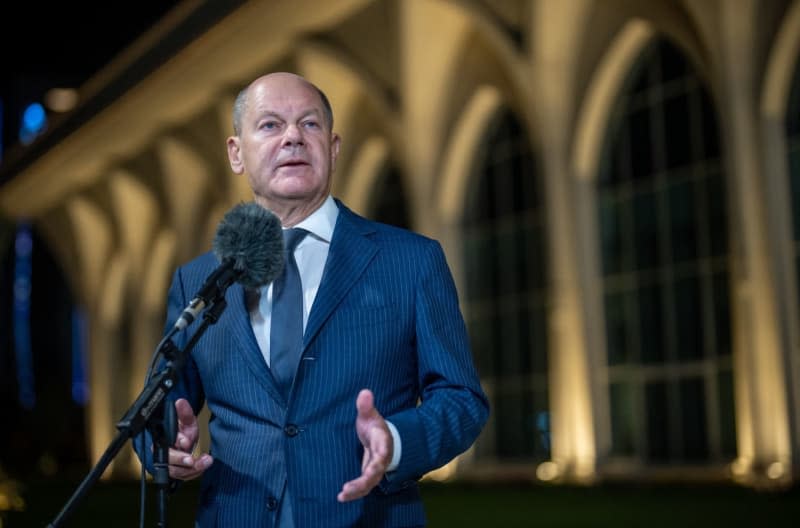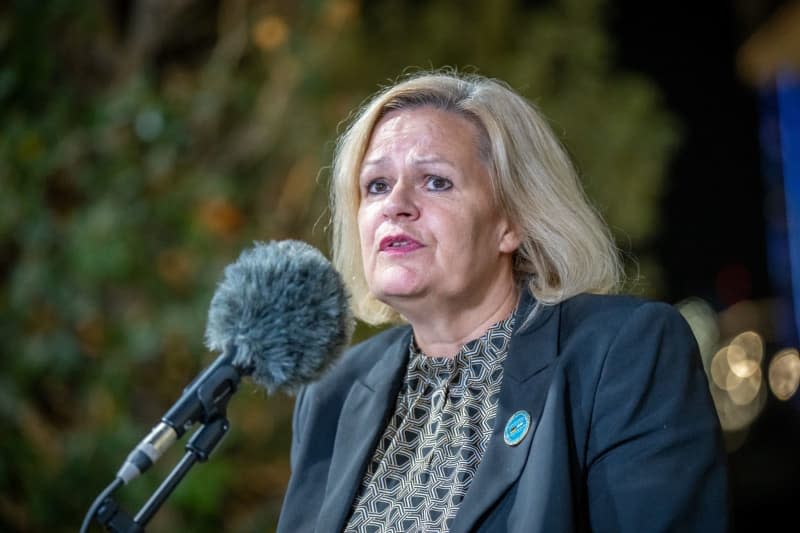German Chancellor Olaf Scholz on Sunday signed a bilateral agreement on migration with Uzbekistan as he travelled to Central Asia for a three-day visit.
The deal was signed in the ancient city of Samarkand and is intended to facilitate the entry of skilled workers from Uzbekistan to Germany, particularly in the care and health sectors.
It will also speed up the repatriation of Uzbeks in Germany without a legal residence permit. Of the 13,700 Uzbeks living in the country, only around 200 people are believed to be eligible for repatriation.
Bilateral agreements a core component of the German coalition government’s migration policy, with the latest example coming on Friday in Berlin with the visit of Kenyan President William Ruto.
Scholz’s tour of Samarkand – a UNESCO World Heritage List site and a key stop on the Silk Road – began with a walk along the Registan public square ahead of a visit to the 17th-century Tilla Kari Mosque.
He is then due to head to Kazakhstan, the largest country and strongest economy in the region, on Monday and Tuesday.
There, the chancellor is to attend a summit with the region’s five former Soviet republics – including Kyrgyzstan, Turkmenistan and Tajikistan – which are all heavily influenced by heavyweights Russia and China.
Scholz is aiming to expand relations with the Central Asian countries and entered into a strategic partnership with them last year, covering the economy, energy, climate and the environment.
In Kazakhstan, his talks are set to focus on oil and gas supplies to Germany and also on sanctions targeting Russia, as Astana has been accused of enabling trade restrictions to be circumvented.
Since the outbreak of Russia’s all-out war on Ukraine in February 2022, Germany has sought to diversify its relations in the region, which had previously focused heavily on economic ties to Russia and China.











